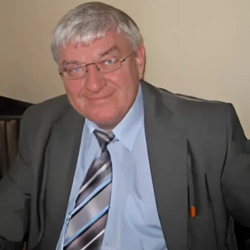
Sergei Shilov
Krasnoyarsk State Pedagogical University, Russian FederationPresentation Title:
Features of frontal cortex activation and neuroenergetic metabolism in students with speech and cognitive developmental delays
Abstract
The study of the mechanisms of development of mental development delays (MDD), speech delay and the success of education of younger schoolchildren is an urgent problem in psychophysiology. Materials and methods. The study involved 64 students with normal development, 46 students with mental retardation, and 50 children with speech development delay (average age 7.7 years). To assess the activation influences in children, the value of the infraslow biopotential (0-0.5 Hz) was recorded using the Omega-tester hardware and software complex. The sign and magnitude of the potential along channels K1 and K2 (across the cerebral hemispheres) were studied. The level of brain metabolism was determined using computer-hardware complex, which records the level of constant potentials on the surface of the head. Neurometabolic responses to functional load (hyperventilation) were analyzed. Results. School children with mental retardation showed states of both hypoactivation and hyperactivation of the frontal cortex. Reduced indicators of the level of development of higher mental functions in mental retardation have different psychophysiological bases. When comparing the data obtained, it was found that the more successful students had optimal neurometabolism indicators, and those who had difficulties in a number of disciplines showed depression of neuroenergy exchange in the frontal and occipital lobes of the right temporal region. In some of these schoolchildren, neuroenergy mapping revealed an alkalytic shift in neurometabolism, indicating the development of stress decompensation. Under functional load, the presence of significantly greater adaptive reserves of the central nervous system was revealed in children who were successful in learning, compared to those who were less successful. In children with speech development delay, asymmetric modulatory influences from subcortical structures were observed. Depressive changes in neurometabolism in this group indicated dysfunctions in the midbrain regions responsible for regulating inhibitory processes in cortical centers. The adaptive response to excessive functional load was characterized by post-load energy deficiency, which corresponded to the initial stage of stress and, as a consequence, led to a reduction in educational opportunities.
Biography
Sergey Nikolaevich Shilov received his doctor of medical sciences degree at the age of 36 from Tomsk State Medical Institute, Russia. At 37, he became a professor at the department of pathological physiology at Krasnoyarsk State Medical Institute. He is currently a professor at the department of correctional pedagogy at Krasnoyarsk State Pedagogical University named after V.P. Astafyev and a professor at the department of fundamental medicine at Khakassia State University named after N.F. Katanov. He has over 200 publications, which have been cited more than 500 times. His publication's H-index is 13. He is a member of the editorial boards of two well-known journals in Russia.


